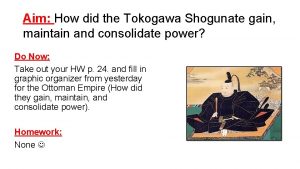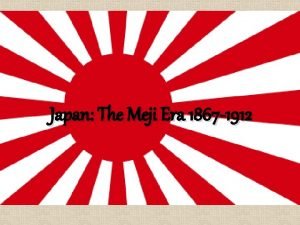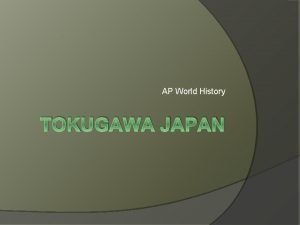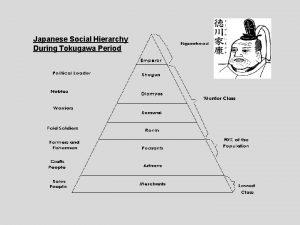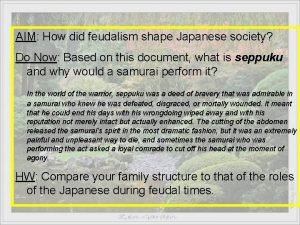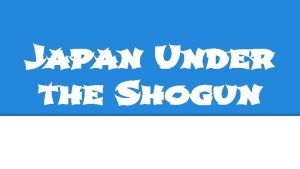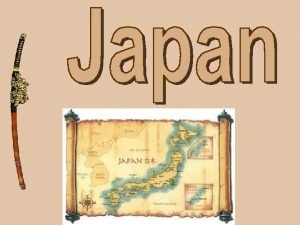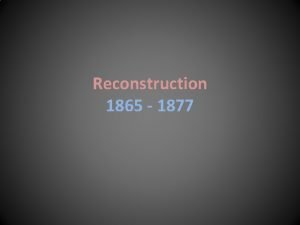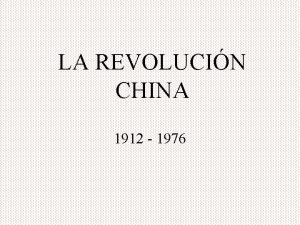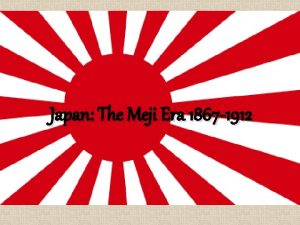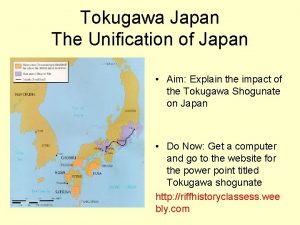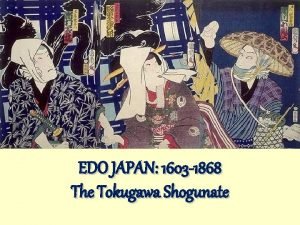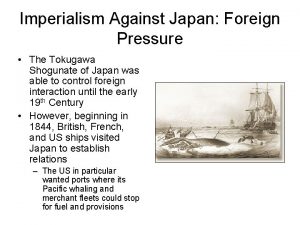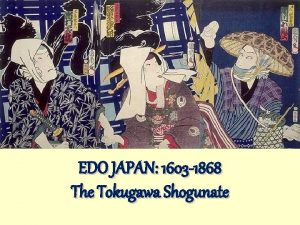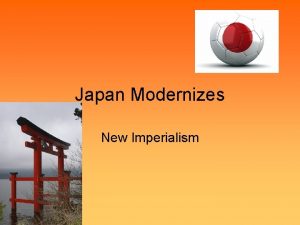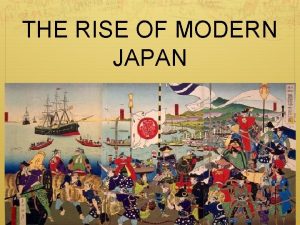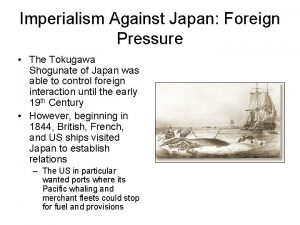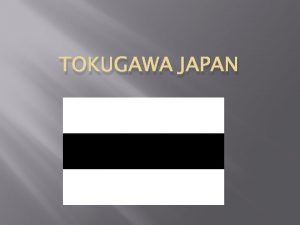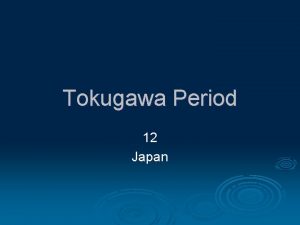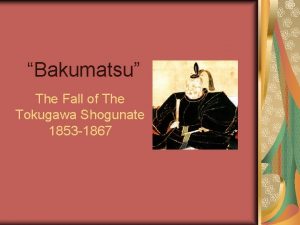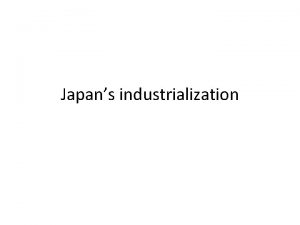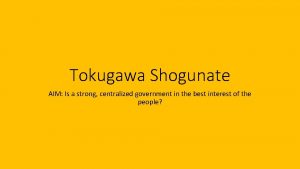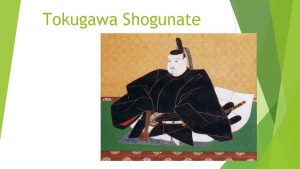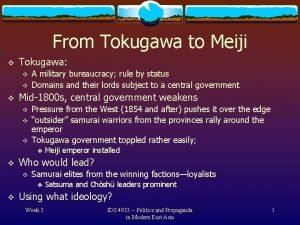Japan The Meji Era 1867 1912 Tokugawa Shogunate




















- Slides: 20

Japan: The Meji Era 1867 -1912


Tokugawa Shogunate (1603 -1868) • Isolationism: Japan cut itself off from foreigners (1635) • Feudalism: Shogun (military leader) and daimyo (lord) held power

Feudal Society in Japan Emperor Shogun Daimyo Samurai Peasants, merchants, artisans

The U. S. “Opens” Japan (1853) • Who comes first? Commodore Matthew Perry and American ships • Why? : – Ensure good treatment of shipwrecked sailors – trade – a place to re-supply and repair ships




In 1862, the Japanese emperor sent officials and scholars to study the situation in China. They learned Japan must adapt or be crushed. A Japanese recorded in his diary from Shanghai… “The Chinese have become servants to the foreigners. Sovereignty (freedom) may belong to China but in fact it's no more than a colony of Great Britain and France. ” So…what do YOU think the Japanese will do? !

The U. S. “Opens” Japan (1853) cont. • Treaty of Kanagawa: Japanese agree to open two ports to trade to U. S. in 1854 – Eventually Great Britain, Russia, and France gain similar trading rights

Meiji Restoration (1868 -1912) • Why is it called the “Meiji Restoration”? : the Emperor was restored to power Emperor Mutsuhito • What does “Meiji” mean? : Enlightened Rule




Meiji Restoration (1868 -1912) cont. Reforms of the Meiji Restoration • 1. Feudalism ended: shogun and daimyo lost power • 2. Adopted western ways: industrialization, modern military • 3. Education: Japanese studied ideas from the U. S. , Britain, France, etc

Meiji-Modern “Took the Best from the West” • Industrialization: Britain • School system: USA • Army: Germany

Japanese Imperialism (early to mid 1900’s) • Why did Japan become imperialistic? : needed resources for their factories (did not have their own) Who does this remind us of? ? ?

Japanese Imperialism (early to mid 1900’s) cont. Japanese imperialism leads to two wars: 1. Sino-Japanese War (1895): Japan won, gained Korea and Taiwan

Japanese Imperialism (early to mid 1900’s) cont. 2. Russo-Japanese War (1904 -1905): Japan won, gained Manchuria

Why does Japan win wars? • Japan has INDUSTRIALIZED and they have the better technology/weapons.
 How did tokugawa shogunate gain power
How did tokugawa shogunate gain power Emperor shogun daimyo samurai peasants
Emperor shogun daimyo samurai peasants Stella theodoulou
Stella theodoulou Ogbe meji
Ogbe meji Tokugawa social hierarchy
Tokugawa social hierarchy The tokugawa shoguns created an orderly society by
The tokugawa shoguns created an orderly society by Social hierarchy japan
Social hierarchy japan Hierarchy feudal japan
Hierarchy feudal japan Donatello timeline
Donatello timeline Tenure of office act 1867
Tenure of office act 1867 Capital 1867
Capital 1867 What country did impressionism originated from
What country did impressionism originated from Gázsterilizálás
Gázsterilizálás Early beginnings of tourism
Early beginnings of tourism 1934-1867
1934-1867 Miners strike 1912
Miners strike 1912 1912 alfred wegener
1912 alfred wegener Harriet tubman 1912
Harriet tubman 1912 Revolucion china 1912
Revolucion china 1912 Picasso 1912
Picasso 1912 Rubkev
Rubkev
